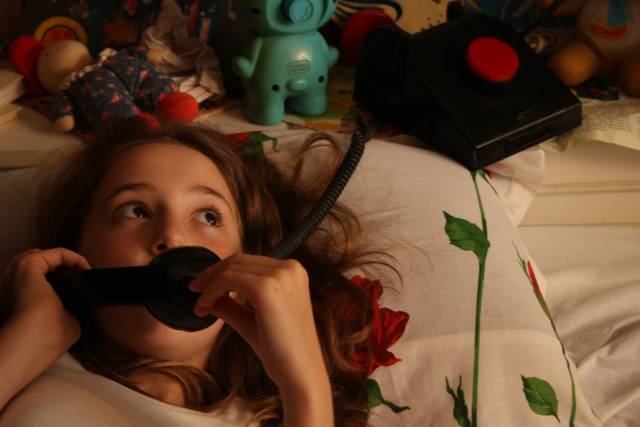
 Blood, belly buttons, umbilical chords and milk - in many forms - run through Maya Vitkova's striking feature debut Viktoria, alongside archival footage charting the rise and fall of communism in Europe, and plenty of 80s house plants.These corporeal elements of motherhood frame a slow, quiet and often surreal story of three generations of dysfunctional women struggling to connect. And, somehow, socialism is intricately linked to the title character.
Blood, belly buttons, umbilical chords and milk - in many forms - run through Maya Vitkova's striking feature debut Viktoria, alongside archival footage charting the rise and fall of communism in Europe, and plenty of 80s house plants.These corporeal elements of motherhood frame a slow, quiet and often surreal story of three generations of dysfunctional women struggling to connect. And, somehow, socialism is intricately linked to the title character.
For a first-time director, Vitkova's unique voice and cinematic finesse are particularly invigorating. Her unpredictable, dryly funny and ultimately deeply moving film blends brooding character study and minimalist melodrama with political satire and deadpan, absurdist comedy. It's a heady mix, but her effortless confidence, unhurried pace and poetic elegance make it all seem inevitable.
The story starts with Boryana (Irmena Chichikova), a reluctant mother-to-be so recklessly determined to defy her maternal instincts that her efforts would be morosely admirable if they weren't so devastatingly cold and cruel. Chichikova's restrained, devastating performance simmers like dark, broody molasses. Boryana is unapologetic, relentless and often unforgivable, but still manages to win our sympathy in the rare moments she reveals her cracks and fragility.
In its second act, the story shifts to the titular Viktoria (the immensely captivating Daria Vitkova), inexplicably born without a belly button on the anniversary of the socialist revolution and promptly named Child of the Decade by an adoring Comrade Todor Zhivkov (a child born without an umbilical chord turns out to be a socialist dream come true; the promise of a future where pregnant women can continue working while their embryos grow elsewhere). She is showered with undue praise, to the detriment of her humanity, until the sudden fall of socialism (made beautifully literal) leaves her isolated and unadored. From those disparate parts, the film unfolds slowly, and movingly, to its conclusion.
Eschewing narrative convention, Vitkova focuses on what she chooses and plays by her own rules. Every moment is measured, full and precise. Every character, though complicated and often dark, is allowed their moment of subjectivity and empathy, revealing just enough of their hidden fears and longings to be rendered too devastatingly human to write off. Vitkova's strange concoction will sink in under your skin, come alive and haunt you. Her final image will melt and linger. Even at two and a half hours, it's a film filled with such feeling, striking images and peculiar moments, you could watch it again immediately and stay under its spell.